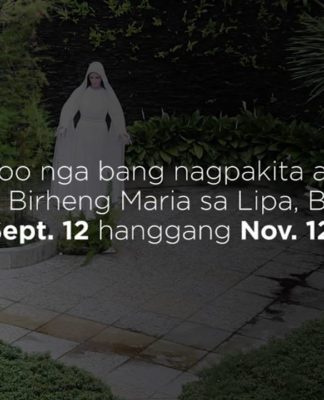If the claim of the Samahang Manggagawa ng UST (SM-UST) that the UST management is cheating on the computation of the 2000-2001 tuition increment distribution is true, then the Union has the reason to rise up. However, if its claim is baseless and untrue, then it should settle down. At least it should trust the management because we are in a remunerative-normative environment.
Fairness has become a byword in any CBA negotiation. But what is fair to one may not be fair to another, or what is fair to some is not fair to the majority.
Of course, both management and union seek fairness. Fairness from an employer’s point of view may be based on what other employers pay their workers. Fairness from the employee’s perception may be based on his own need for a living wage. Not that management does not give its workers a living wage. But as I said, both sides have different interpretations of what constitute fairness.
Since the students will be the ones affected in the event of a strike, and since it’s all about our money—meaning the tuition we pay—I suggest that the students be the “third party” or the honorary conciliator. The students of course have a different idea of fairness: Give to Caesar what is due to Caesar. Ultimately, give the students (it’s not that I am emphasizing that we are the bloodline of the University) their much deserved quality services (wala nang matataray at laging nakasimangot na clerks at office personnel), safe and study-conducive campus, and non-defective and high-quality facilities.
While I was studying the issue, I tried to solicit opinions from professors and co-students. Some students thought that the Administration should not be harsh on the union members. Meanwhile, most professors said that the management has been just in refusing to cave in to the demands of the union. They said some faculty members are beginning to envy non-academic personnel because the latter have a better pay and benefits.
But the situation of the Faculty Union is poles apart from that of the SM-UST. And, there is no point in comparing them because comparison breeds injustice.
Don’t worry, Mr. Sanggalang. Despite your doubts about our impartiality, we will support you if your claim is true and as watchdogs, we will continue covering the issue. The same goes for the management panel.
Our society is undoubtedly not frictionless. Its condition is not exactly ideal. That’s why let dialogue be the universal tool of consolidating our strengths, especially here in the University. We should discuss problems, define our expectations, rooting our discussions on Thomasian ideals and tradition, and on what is right and just. Dialogue is necessary.
In this tough time, just when the world economy is still struggling to cope with the global recession, everybody deserves a raise—monetary or not.
Given the rising cost of living, what else would be left of a poor man’s daily wage?
At the same time, with the rampant downsizing and retrenchment happening in the industry, where would now the poor Juan dela Cruz derive his income?
Painting the picture of the nation’s present state is akin to looking at a poor man’s profile, which is based on the current social, political, and economic indicators. And if we are going to look at Juan dela Cruz’s profile, you’ll be surprised to find the following:
Name: Juan dela Cruz III
Birthday: 25 February 1961 (First Quarter Storm)
Status: Married with wife and six children
Address: Unang bahay pagbaba ng tarangkahan sa ilalim ng tulay ng Delpan sa Tondo
Occupation: no steady job; occasional carpenter and plumber
Educational background: Grade three
Hobby: Inuman sa kanto o sa may riles kapag walang trabaho
Favorite food: Payless or Maggi Noodles, dried fish or tuyo, monggo, and kanin at asin
Favorite drink: Markang demonyo o bilog,Kulafu, and SMB.














